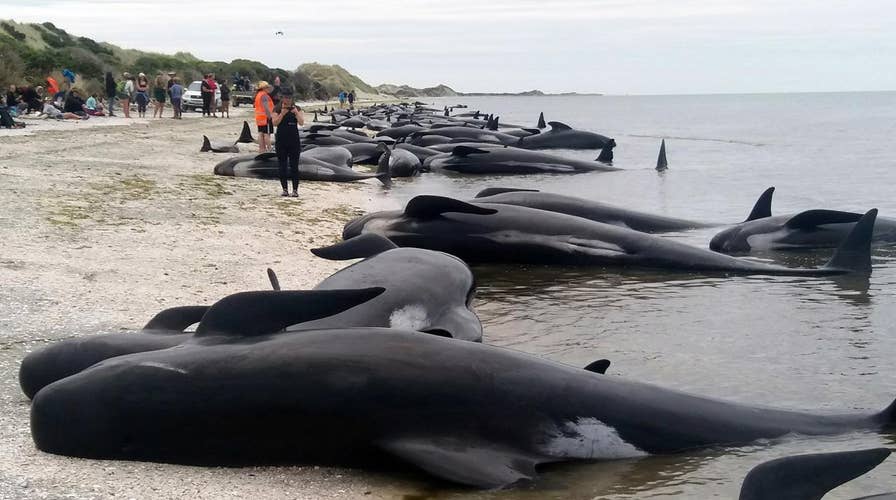Beachgoers in New Zealand have been warned to steer clear of exploding whales after the mass stranding that left hundreds of whale carcasses rotting on a beach in the country’s South Island.
Reuters reports that authorities are cutting holes in 300 decomposing pilot whale carcasses, popping the dead animals “like balloons” to prevent them from exploding on the remote beach on South Island’s Golden Bay. New Zealand’s Department of Conservation cordoned off the carcasses and issued a statement warning of the risk posed by exploding whales, according to Reuters.
RACE TO SAVE WHALES AFTER 400 STRANDED, 275 DIE ON NEW ZEALAND BEACH
Popular Science explains that, as bodies decompose and bacteria break down flesh, they release gases. However, whales’ thick skin and blubber can make it difficult for the gases to diffuse-- so puncturing the side of their bodies can prevent explosion by letting the gases out slowly.
Volunteers’ frantic efforts to refloat the pilot whales and the grisly scenes unfolding on Golden Bay have garnered global media attention over the last few days.
THOUSANDS OF BEES FOUND WASHED UP ON FLORIDA BEACH SPARK CONCERNS
More than 400 pilot whales swam aground and became stranded on Golden Bay’s Farewell Spit Thursday, sparking a massive rescue operation. Just two days later a second pod of more than 200 whales became stranded, Reuters reports.
A total of around 400 whales were saved by rescuers, according to Reuters.
STRANGE ORANGE ALLIGATOR TURNS HEADS IN SOUTH CAROLINA
Dr Rochelle Constantine, a marine biologist at the University of Auckland told the BBC that the shallow waters around Farewell Spit may have caused the whales to beach. The combination of water that becomes gradually shallower and soft sand may have confused the echo-location that whales use to navigate, she said.
Pilot whales are the second largest species in the dolphin family, after killer whales.









































